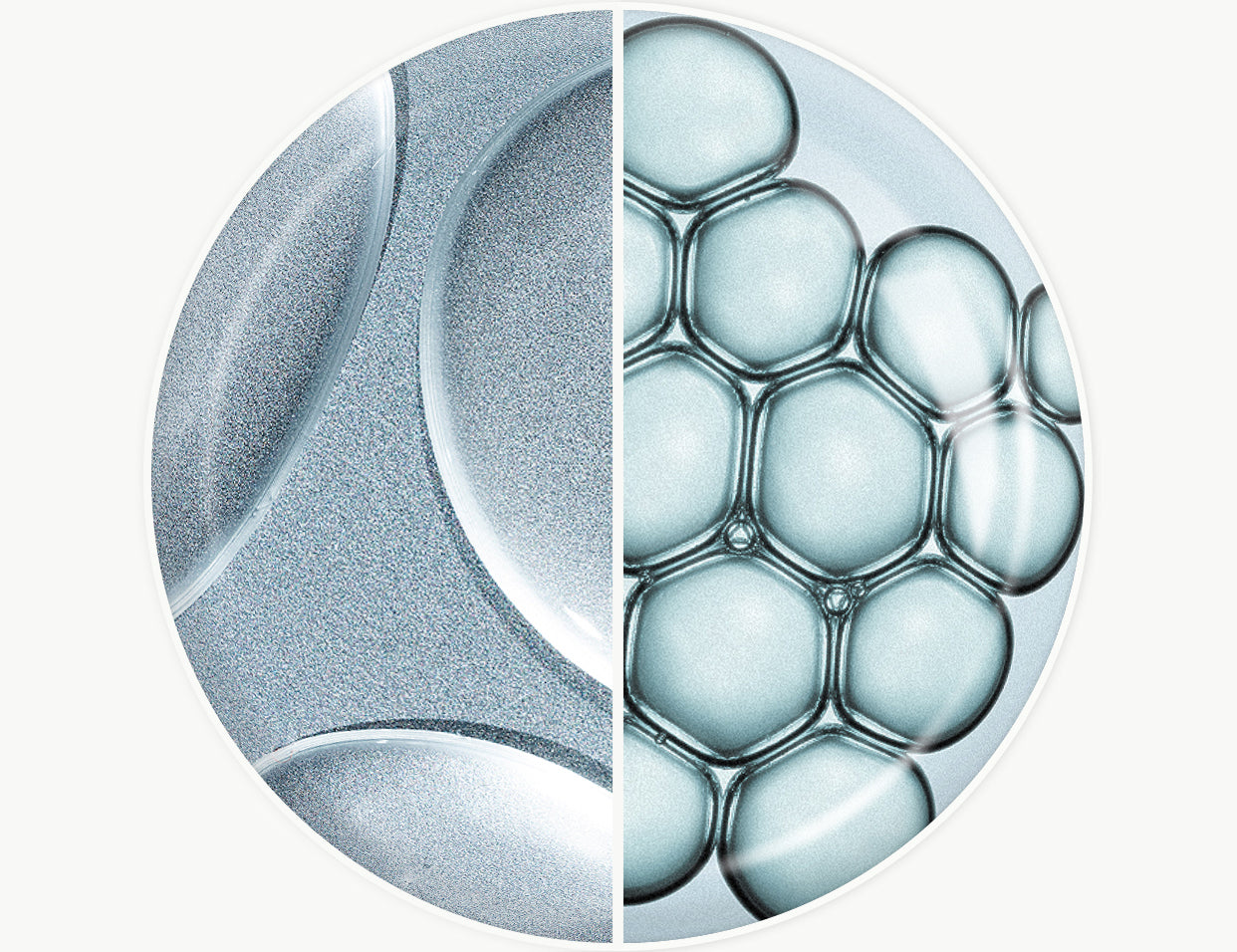Our skin barrier protects us from environmental aggressors like pollutants and bacteria. To maintain a healthy skin barrier, hydration is essential, as it helps prevent water loss and flaking. A hydrated skin barrier can also improve elasticity to minimize the appearance of fine lines and wrinkles. Hydration can be boosted by using humectants in serums and moisturizers. Two well-known humectants are glycerin and hyaluronic acid—but what’s the difference between them?
What Is Glycerin?
Glycerin, a plant-derived compound, is the backbone of triglyceride and is composed of three hydroxyl groups. Found widely in nature, glycerin is a popular cosmetic ingredient due to its ability to bind to water and hydrate the skin. It helps reduce Transepidermal Water Loss (TEWL), ensuring the skin retains moisture. Moreover, glycerin is safe to use up to 100%.
In formulation, glycerin is a versatile ingredient that acts as both a humectant and beneficial enhancer for other actives. It not only enhances hydration but also softens formulas containing surfactants. The Prequel Gleanser, which contains 50% glycerin, exemplifies its gentle cleansing properties for both face and body.
What Type Of Skin Is Glycerin Best For?
Glycerin benefits all skin types. Those with sensitive, dry, or flaky skin may find particular benefit from products containing higher levels of glycerin.
What Is Hyaluronic Acid?
Hyaluronic acid is a naturally occurring substance found in our bodies but can also be produced synthetically through fermentation for cosmetic purposes. As a key component of the extracellular matrix (ECM) molecules, hyaluronic acid plays a vital role in maintaining skin integrity at the cellular level. In cosmetics, hyaluronic acid is available in various molecular weights to address specific skin concerns, such as fine lines or dehydration.
Lower molecular weight hyaluronic acid is clinically known to go further into the skin, while higher molecular weight tends to remain on the surface, offering a subtle tightening effect that can reduce the appearance of fine lines.
In formulation, hyaluronic acid's water-holding capacity allows it to form a gel matrix at low concentrations. This not only hydrates the skin but also contributes to the viscosity of the formula at certain percentages.
What Type Of Skin Is Hyaluronic Acid Best For?
Hyaluronic acid is suitable for all skin types. For fine lines and wrinkles, consider a lower molecular weight hyaluronic acid. For hydration and flaky skin, a higher molecular weight or a formula with multiple molecular weights is recommended.
Which Is More for Hydrating Between Glycerin and Hyaluronic Acid?
While both glycerin and hyaluronic acid are excellent humectants with diverse applications, glycerin's smaller molecular size enables it to reach a bit further into the stratum corneum via aquaporins. This, combined with its molecular structure, allows glycerin to remain within the skin for a longer duration compared to water, which evaporates more readily.
Hyaluronic acid on the other hand is much larger in size and tends to sit on the skin's surface. Although this is still beneficial, its hydrating effect may be shorter-lived compared to glycerin. Nonetheless, hyaluronic acid remains a valuable humectant.
Between Glycerin and Hyaluronic Acid, Which Is Better for Skin Barrier Support?
Both glycerin and hyaluronic acid play crucial roles in skin barrier support. They can work synergistically together to plump and hydrate the skin. Depending on your skin needs, glycerin can provide longer lasting hydration while hyaluronic acid provides daily replenishment.
DISCLAIMER: All skin care articles are intended to help educate on specific ingredients and skin care topics. Our articles are written to be informative and informational. Any reference to a specific patient experience is not a medical suggestion for treatment. Please note that any Prequel products with referenced ingredients are formulated for Cosmetic Use Only and NOT intended as replacements for physician advice and/or pharmaceutical product recommendations.




